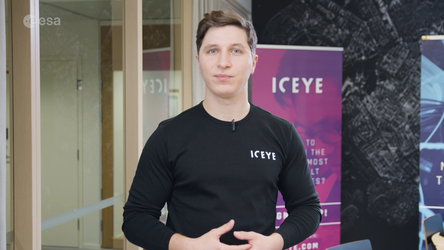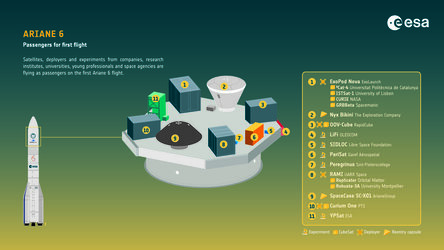

Ariane 6 first launch with Rafale
Thank you for liking
You have already liked this page, you can only like it once!
Europe's rocket Ariane 6 seen on its inaugural flight on 9 July 2024 together with a Rafale fighter jet from the French Air and Space Force that was at Europe's Spaceport on the occasion of the first launch to monitor the airspace.
The first Ariane 6 rocket was successfully launched on 9 July 2024, completing its mission of releasing several varied satellites into a circular Earth orbit and restoring Europe’s independent access to space. The inaugural flight, designated VA262, was a great success for Europe, paving the way for the next Ariane 6 flight in 2024 and demonstrating the new heavy-lift rocket’s ability to reach its target orbit and deploy satellites and constellations.
Since launch, data from the launch site and data beamed back by the rocket and its payloads have been pored over by teams at ESA, ArianeGroup, CNES and Arianespace, beginning the analysis that will help teams understand every moment of the historic launch and ensure the performance of future flights. With the launch of Ariane 6, Europe is back in space with its own launch capability.
-
CREDIT
Armée de l'Air et de l'Espace/Defense -
LICENCE
ESA Standard Licence

Rafal Modrzweski, CEO at ICEYE, on New Space and ESA

Ariane 4 rocket configurations and an Ariane 5 gener…

Ariane 6 defies gravity in breathtaking first flight

Ariane 6 infographic: first passengers

